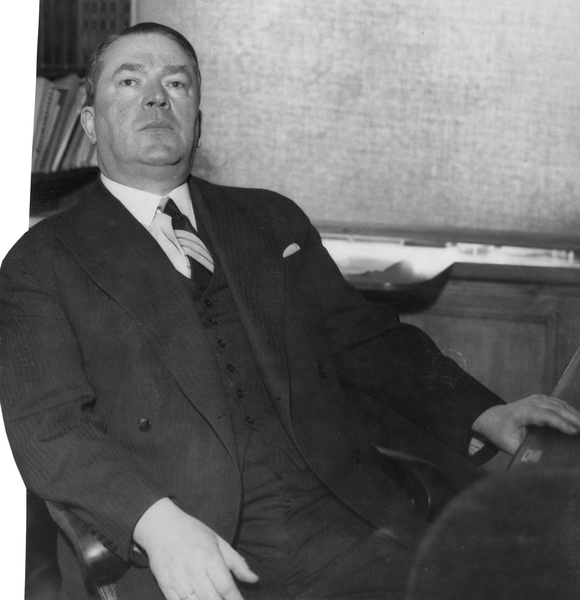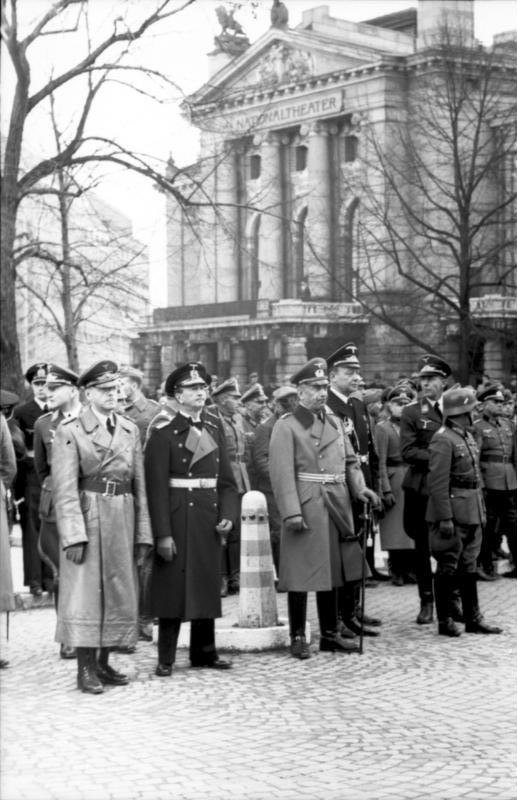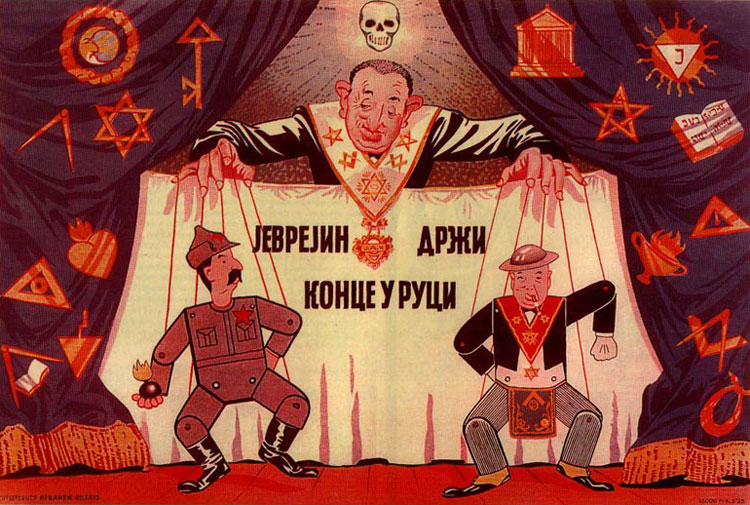|
Fronten
''Fronten'' ( no, The Front) was a biweekly Norwegian newspaper. History and profile It was published by Nazi Eugen Nielsen from 1932 to 1940. In the beginning, it was published biweekly, but gradually this became more sporadic. Nielsen's primary interest, which was reflected in the publications, was attacking freemasonry. Nielsen cooperated with the short-lived National Socialist Workers' Party of Norway (Norges Nasjonalsosialistiske Arbeiderparti), and was, therefore, critical to the rivalling national socialist party Nasjonal Samling. With Nasjonal Samling seizing power in Norway in the autumn of 1940, during the German occupation of Norway, ''Fronten'' eventually ceased to exist. Nielsen continued as an Anti-Masonry consultant for the Sicherheitsdienst ' (, ''Security Service''), full title ' (Security Service of the ''Reichsführer-SS''), or SD, was the intelligence agency of the SS and the Nazi Party in Nazi Germany. Established in 1931, the SD was the first Nazi intel ... [...More Info...] [...Related Items...] OR: [Wikipedia] [Google] [Baidu] |
Eugen Nielsen
Georg Eugen Nielsen (1884 – 11 July 1963) was a Norwegian architect, publisher and activist. He was an architect by profession, but was wealthy and had time to pursue an interest in writing and publishing. He published the biweekly newspaper '' Fronten'' from 1932. ''Fronten'' was an organ for the short-lived National Socialist Workers' Party of Norway, and Nielsen was skeptical to Nasjonal Samling. His main interest was exposing what he perceived as the evils of Freemasonry. During the occupation of Norway by Nazi Germany, Nasjonal Samling people assumed political office. Nielsen never joined the party, but backed up part of it, specifically pan-Germanist fractions. He was set to administer the ownings of the Norwegian Order of Freemasons after it was closed down, and worked as an Anti-Freemasonry consultant for the Sicherheitsdienst. He attempted to stigmatize people in the Nasjonal Samling leadership with Freemasonry allegations. During the legal purge in Norway after Worl ... [...More Info...] [...Related Items...] OR: [Wikipedia] [Google] [Baidu] |
National Socialist Workers' Party Of Norway
The National Socialist Workers' Party of Norway ( no, Norges Nasjonalsocialistiske Arbeiderparti, NNSAP) was a minor extraparliamentary political party in Norway. The party was founded in 1930, and dissolved in May 1940. History Ideologically modelled on the German Nazi Party (NSDAP), and espousing a pan-Germanic current, many members of the party, and notably the founder and first leader Adolf Egeberg had organisational and personal ties to the NSDAP and the SS. Founded as a Nazi "cell" in 1930, the party gained financing from Eugen Nielsen, publisher of '' Fronten'', from 1932 until a schism in 1934 due to conflict over Nielsen's primarily anti-Masonic focus, with the party seeking to develop its national socialist ideology. In early 1933 the NNSAP saw a surge of Oslo gymnasium students joining the party, and according to the rival communist ''Mot Dag'' movement the NNSAP briefly became the leading student organisation in the city. The party had around a thousand members at ... [...More Info...] [...Related Items...] OR: [Wikipedia] [Google] [Baidu] |
Nazism
Nazism ( ; german: Nazismus), the common name in English for National Socialism (german: Nationalsozialismus, ), is the far-right totalitarian political ideology and practices associated with Adolf Hitler and the Nazi Party (NSDAP) in Nazi Germany. During Hitler's rise to power in 1930s Europe, it was frequently referred to as Hitlerism (german: Hitlerfaschismus). The later related term "neo-Nazism" is applied to other far-right groups with similar ideas which formed after the Second World War. Nazism is a form of fascism, with disdain for liberal democracy and the parliamentary system. It incorporates a dictatorship, fervent antisemitism, anti-communism, scientific racism, and the use of eugenics into its creed. Its extreme nationalism originated in pan-Germanism and the ethno-nationalist '' Völkisch'' movement which had been a prominent aspect of German nationalism since the late 19th century, and it was strongly influenced by the paramilitary groups that emerged af ... [...More Info...] [...Related Items...] OR: [Wikipedia] [Google] [Baidu] |
Freemasonry
Freemasonry or Masonry refers to fraternal organisations that trace their origins to the local guilds of stonemasons that, from the end of the 13th century, regulated the qualifications of stonemasons and their interaction with authorities and clients. Modern Freemasonry broadly consists of two main recognition groups: * Regular Freemasonry insists that a volume of scripture be open in a working lodge, that every member profess belief in a Supreme Being, that no women be admitted, and that the discussion of religion and politics be banned. * Continental Freemasonry consists of the jurisdictions that have removed some, or all, of these restrictions. The basic, local organisational unit of Freemasonry is the Lodge. These private Lodges are usually supervised at the regional level (usually coterminous with a state, province, or national border) by a Grand Lodge or Grand Orient. There is no international, worldwide Grand Lodge that supervises all of Freemasonry; each Grand Lod ... [...More Info...] [...Related Items...] OR: [Wikipedia] [Google] [Baidu] |
Nasjonal Samling
Nasjonal Samling (, NS; ) was a Norwegian far-right political party active from 1933 to 1945. It was the only legal party of Norway from 1942 to 1945. It was founded by former minister of defence Vidkun Quisling and a group of supporters such as Johan Bernhard Hjortwho led the party's paramilitary wing (''Hirden'') for a short time before leaving the party in 1937 after various internal conflicts. The party celebrated its founding on 17 May, Norway's national holiday, but was founded on 13 May 1933. History Pre-war politics The party never gained direct political influence, but it made its mark on Norwegian politics nonetheless. Despite the fact that it never managed to get more than 2.5% of the vote and failed to elect even one candidate to the Storting, it became a factor by polarising the political scene. The established parties in Norway viewed it as a Norwegian version of the German Nazis, and generally refused to cooperate with it in any way. Several of its marches a ... [...More Info...] [...Related Items...] OR: [Wikipedia] [Google] [Baidu] |
German Occupation Of Norway
The occupation of Norway by Nazi Germany during the Second World War began on 9 April 1940 after Operation Weserübung. Conventional armed resistance to the German invasion ended on 10 June 1940, and Nazi Germany controlled Norway until the capitulation of German forces in Europe on 8 May 1945. Throughout this period, a pro-German government named Den nasjonale regjering (English: the National Government) ruled Norway, while the Norwegian king Haakon VII and the prewar government escaped to London, where they formed a government in exile. Civil rule was effectively assumed by the ''Reichskommissariat Norwegen'' (Reich Commissariat of Norway), which acted in collaboration with the pro-German puppet government. This period of military occupation is, in Norway, referred to as the "war years", "occupation period" or simply "the war". Background Having maintained its neutrality during the First World War (1914–1918), Norwegian foreign and military policy since 1933 was largely ... [...More Info...] [...Related Items...] OR: [Wikipedia] [Google] [Baidu] |
Anti-Masonry
Anti-Masonry (alternatively called anti-Freemasonry) is "avowed opposition to Freemasonry",''Oxford English Dictionary'' (1979 ed.), p. 369. which has led to multiple forms of religious discrimination, violent persecution, and suppression in some countries as well as in various organized religions (primarily Abrahamic religions). However, there is no homogeneous anti-Masonic movement. Anti-Masonry consists of radically differing criticisms from frequently incompatible political institutions and organized religions that oppose each other, and are hostile to Freemasonry in some form. Early anti-Masonic documents The earliest anti-Masonic document was a leaflet which was printed in 1698 by a Presbyterian minister who was named Winter. It reads: TO ALL GODLY PEOPLE, In the Citie of London. Having thought it needful to warn you of the Mischiefs and Evils practiced in the Sight of God by those called Freed Masons, I say take Care lest their Ceremonies and secret Swearings take hold ... [...More Info...] [...Related Items...] OR: [Wikipedia] [Google] [Baidu] |
Sicherheitsdienst
' (, ''Security Service''), full title ' (Security Service of the ''Reichsführer-SS''), or SD, was the intelligence agency of the SS and the Nazi Party in Nazi Germany. Established in 1931, the SD was the first Nazi intelligence organization and the Gestapo (formed in 1933) was considered its sister organization through the integration of SS members and operational procedures. The SD was administered as an independent SS office between 1933 and 1939. That year, the SD was transferred over to the Reich Security Main Office (''Reichssicherheitshauptamt''; RSHA), as one of its seven departments. Its first director, Reinhard Heydrich, intended for the SD to bring every single individual within the Third Reich's reach under "continuous supervision". Following Germany's defeat in World War II, the tribunal at the Nuremberg trials officially declared that the SD was a criminal organisation, along with the rest of Heydrich's RSHA (including the Gestapo) both individually and as branch ... [...More Info...] [...Related Items...] OR: [Wikipedia] [Google] [Baidu] |
1932 Establishments In Norway
Year 193 ( CXCIII) was a common year starting on Monday (link will display the full calendar) of the Julian calendar. At the time, it was known as the Year of the Consulship of Sosius and Ericius (or, less frequently, year 946 '' Ab urbe condita''). The denomination 193 for this year has been used since the early medieval period, when the Anno Domini calendar era became the prevalent method in Europe for naming years. Events By place Roman Empire * January 1 – Year of the Five Emperors: The Roman Senate chooses Publius Helvius Pertinax, against his will, to succeed the late Commodus as Emperor. Pertinax is forced to reorganize the handling of finances, which were wrecked under Commodus, to reestablish discipline in the Roman army, and to suspend the food programs established by Trajan, provoking the ire of the Praetorian Guard. * March 28 – Pertinax is assassinated by members of the Praetorian Guard, who storm the imperial palace. The Empire is auctioned o ... [...More Info...] [...Related Items...] OR: [Wikipedia] [Google] [Baidu] |
1940 Disestablishments In Norway
Year 194 (Roman numerals, CXCIV) was a common year starting on Tuesday (link will display the full calendar) of the Julian calendar. At the time, it was known as the Year of the Consulship of Septimius and Septimius (or, less frequently, year 947 ''Ab urbe condita''). The denomination 194 for this year has been used since the early medieval period, when the Anno Domini calendar era became the prevalent method in Europe for naming years. Events By place Roman Empire * Emperor Septimius Severus and Clodius Albinus, Decimus Clodius Septimius Albinus Caesar become Roman Consuls. * Battle of Issus (194), Battle of Issus: Septimius Severus marches with his army (12 Roman legion, legions) to Cilicia, and defeats Pescennius Niger, Roman governor of Syria. Pescennius retreats to Antioch, and is executed by Severus' troops. * Septimius Severus besieges Byzantium (194–196); the Defensive wall, city walls suffer extensive damage. Asia * Battle of Yan Province: Warlords Cao Cao ... [...More Info...] [...Related Items...] OR: [Wikipedia] [Google] [Baidu] |
Defunct Newspapers Published In Norway
{{Disambiguation ...
Defunct (no longer in use or active) may refer to: * ''Defunct'' (video game), 2014 * Zombie process or defunct process, in Unix-like operating systems See also * * :Former entities * End-of-life product * Obsolescence Obsolescence is the state of being which occurs when an object, service, or practice is no longer maintained or required even though it may still be in good working order. It usually happens when something that is more efficient or less risky r ... [...More Info...] [...Related Items...] OR: [Wikipedia] [Google] [Baidu] |
Nazi Newspapers
Nazism ( ; german: Nazismus), the common name in English for National Socialism (german: Nationalsozialismus, ), is the far-right totalitarian political ideology and practices associated with Adolf Hitler and the Nazi Party (NSDAP) in Nazi Germany. During Hitler's rise to power in 1930s Europe, it was frequently referred to as Hitlerism (german: Hitlerfaschismus). The later related term "neo-Nazism" is applied to other far-right groups with similar ideas which formed after the Second World War. Nazism is a form of fascism, with disdain for liberal democracy and the parliamentary system. It incorporates a dictatorship, fervent antisemitism, anti-communism, scientific racism, and the use of eugenics into its creed. Its extreme nationalism originated in pan-Germanism and the ethno-nationalist '' Völkisch'' movement which had been a prominent aspect of German nationalism since the late 19th century, and it was strongly influenced by the paramilitary groups that emerged afte ... [...More Info...] [...Related Items...] OR: [Wikipedia] [Google] [Baidu] |



